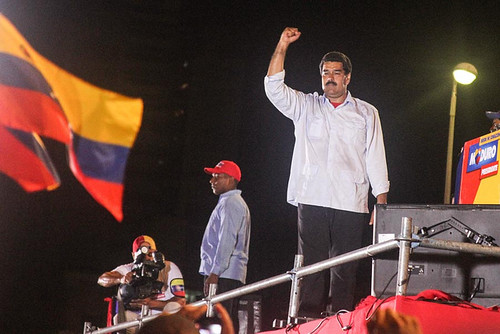On July 28 of this year, protests erupted all over Venezuela. Tear gas, Molotov cocktails, and bullets flew all around in a firey scene. The chaos began after Nicolás Maduro was announced as the presidential election winner for a third consecutive term after first entering office in 2013. Beyond protests, Maduro was met with backlash from his opponent, Edmundo Gonzalez, who claimed to have won 70 percent of the vote. It is unclear if the election was fair and who truly won. Through debates over the validity of exit polls, allegations of foreign hacking interference, and various international actors making extreme claims, one matter is clear: this is a complex issue.
The anti-Maduro side says that Maduro has been falsifying election results since at least 2019. The Organization of American States (OAS), an international organization comprising nations in the Americas aiming to promote unity, also released an official report denying Maduro’s win. Additionally, many believe this recent election is a continuation of his authoritarian reign that is destroying Venezuelan democracy, using examples such as the United Nations 2022 report accusing Maduro of various crimes against humanity and the Human Rights Watch estimation that Maduro has killed nearly 20,000 Venezuelans.
The pro-Maduro side accepts the Venezuelan elections as legitimate. After a thorough investigation, the Supreme Tribunal of Justice (STJ), Venezuela’s highest court, released a verdict verifying that Maduro fairly won the presidency. The OAS consequently denounced the court’s decision by claiming the numbers the STJ used were mathematically impossible. Many Maduro supporters prefer to point fingers at international actors. Notably, the U.S. Some say that the U.S. has and continues to target Venezuela by imposing harsh sanctions in response to the election of a leader from a socialist party. Others claim that the U.S. is following old patterns of illegitimate international intervention for selfish gains by purposefully trying to disrupt Venezuela’s political processes to get closer to Venezuelan oil.
Amidst the controversy and turmoil from protests, Maduro has remained in office and is currently acting as the Venezuelan president. Many have called for foreign nations, especially the U.S., to intervene and reassess the election. This raises many questions. Should the U.S. intervene? What are the morals of international intervention? If intervention is called for, to what extent should the U.S. intervene?
The U.S. has a long history of international intervention globally, especially throughout Latin America. Notable occasions include their 1954 CIA invasion of Guatemala to overthrow President Jacobo Arbenz Guzman, their 1963 military invasion of Ecuador to overthrow President Jose Maria Velasco Ibarra, and their 1973 CIA-backed military coup in Chile to remove President Salvador Allende and replace him with Augusto Pinochet. These interventions tend to have a pattern: a president in Latin America who is not loyal to the U.S. gets elected, the U.S. intervenes militarily, and a new president who is pro-U.S. is installed. Ultimately, skepticism that the U.S. would intervene with pure motives is warranted, and international intervention could have unintended consequences.
Regardless of the morality of anyone involved, a president being removed from power simply because the U.S. is not a fan of them is unjust. It is not fair that smaller nations do not have the autonomy to elect their leader simply based on whether the U.S. supports them or not. If there is large-scale voter fraud, human rights violations, widespread corruption, and citizens asking for help, that is an entirely different story.
It is clear that international intervention, especially military intervention, can be a slippery slope often wrought with consequences. In the case of Maduro in Venezuela, it is questionable if the U.S. would be able to intervene in good faith without selfish motives. Therefore, if other nations were to intervene in Venezuela, it should instead be through impartial groups helping voting processes become more fair, overseeing elections, ensuring peaceful power transfers, and bettering human rights for all citizens.
As it stands, Maduro is currently acting as the President of Venezuela. The U.S. has not intervened but, along with thirty-three nations, recently asked the UN to send human rights representatives into the nation to work towards a solution where Maduro is removed. For the foreseeable future, it appears as if the U.S. does not plan on intervening in other measures.
Edited by Lucy De Cartier

